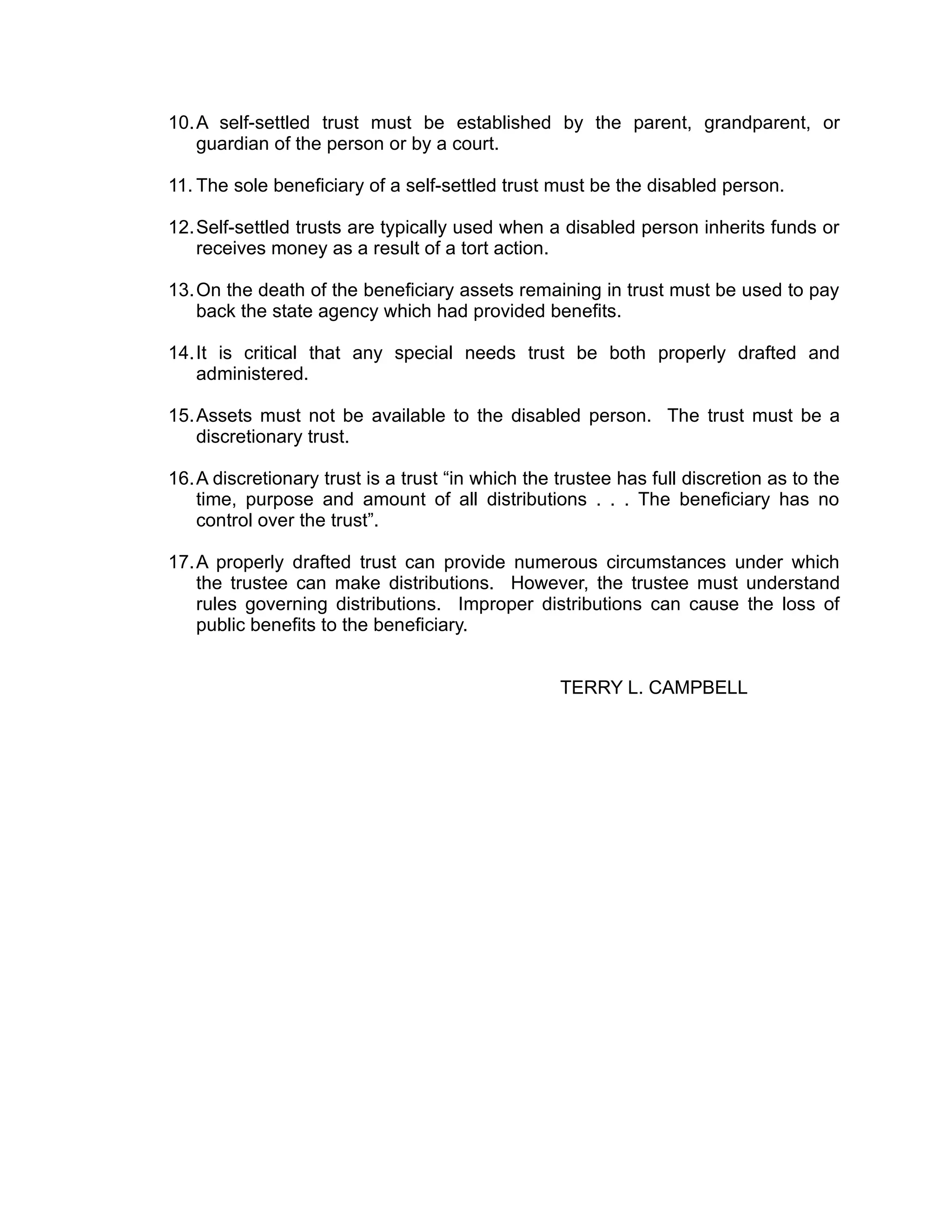This document outlines key concepts regarding special needs trusts. Special needs trusts are intended to supplement, not replace, public benefits for a disabled beneficiary. Funds in the trust do not affect eligibility for means-tested programs like Medicaid and SSI. There are two types of special needs trusts: third-party trusts established by others using their own assets, and self-settled trusts established using the disabled person's assets. A properly drafted and administered special needs trust can help maintain public benefits for the disabled beneficiary.

